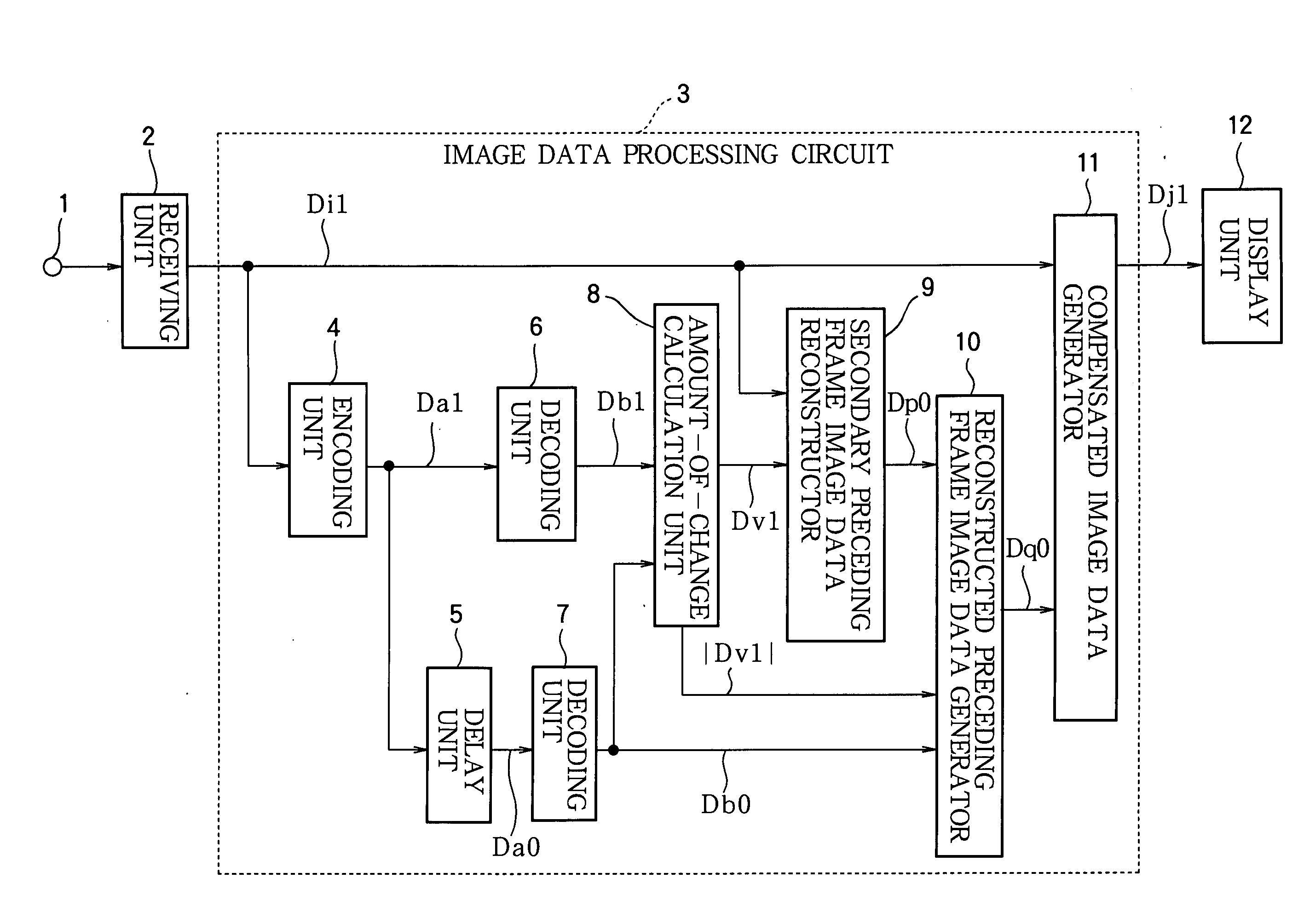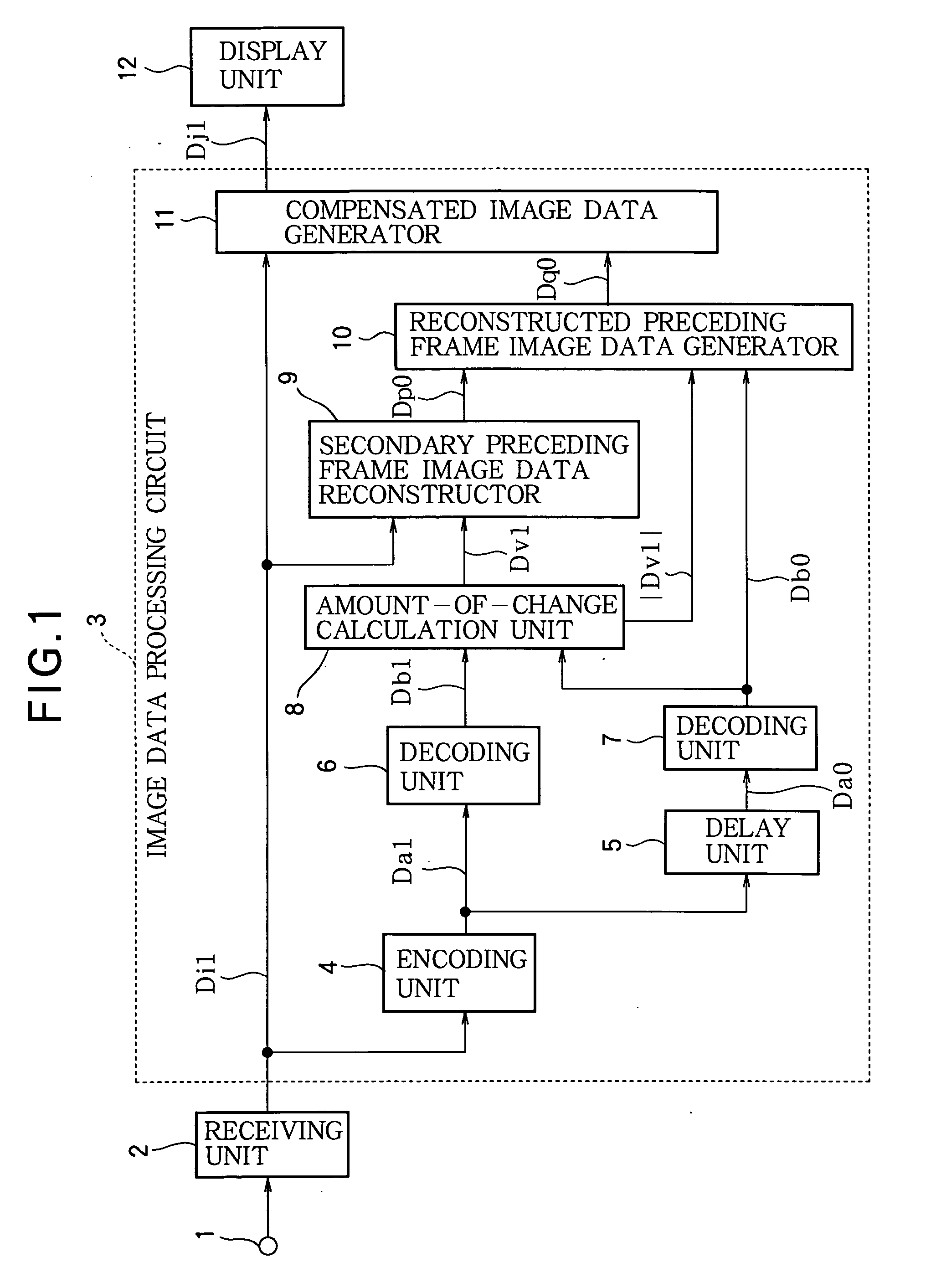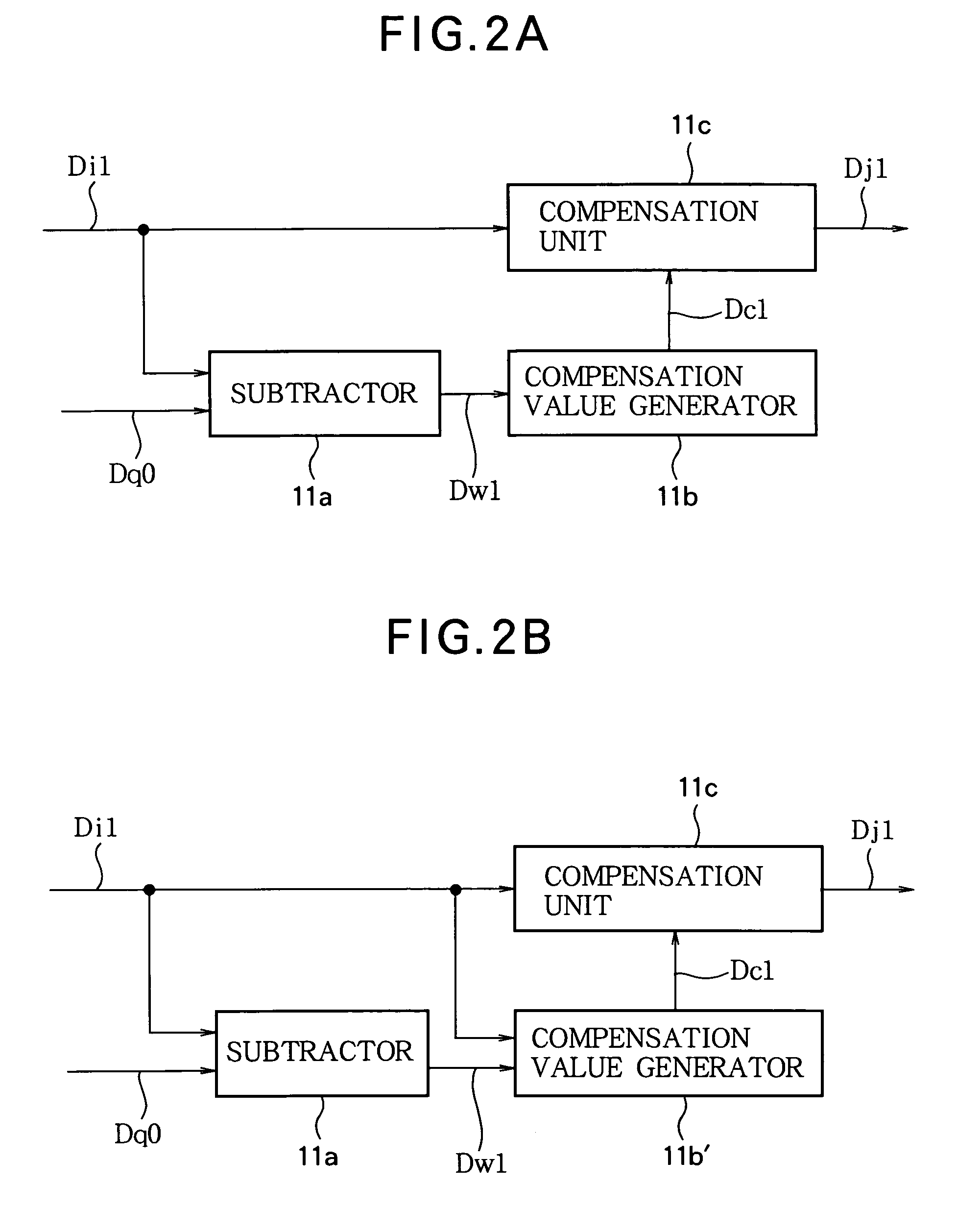Image data processing method, and image data processing circuit
a liquid crystal display device and image data technology, applied in the direction of static indicating devices, instruments, television systems, etc., can solve the problems of liquid crystals used in liquid crystal panels, inability to rapidly change images, and large image memory siz
- Summary
- Abstract
- Description
- Claims
- Application Information
AI Technical Summary
Benefits of technology
Problems solved by technology
Method used
Image
Examples
first embodiment
[0042] FIG. 1 is a block diagram showing the configuration of a liquid crystal display driving device according to a first embodiment of the present invention;
[0043] The input terminal 1 is a terminal through which an image signal is input to display an image on a liquid crystal display device. A receiving unit 2 performs tuning, demodulation, and other processing of the image signal received at the input terminal 1 and thereby successively outputs image data representing a one-frame portion of the present image, that is, the image data Di1 of the present frame (the current frame). The image data Di1 of the current frame, which have not undergone processing such as encoding in the processing circuit, will also be referred to as the original current frame image data.
[0044] The image data processing circuit 3 comprises an encoding unit 4, a delay unit 5, decoding units 6 and 7, an amount-of-change calculation unit 8, a secondary preceding frame image data reconstructor 9, a reconstruc...
second embodiment
[0116] In the first embodiment, the compensated image data generator 11 calculates a second amount of change between the primary reconstructed preceding frame image data Db0 or the secondary reconstructed preceding frame image data Dp0 and the original current frame image data Di1, and then compensates the voltage-level of the brightness signal or other signal corresponding to the image data of the current frame in accordance with the response speed characteristic and the amount of change in the image data between the current frame and preceding frame, but calculating these image data for each pixel places an increased computational load on the processing unit, which is a problem. The load may be tolerable if the formulas for calculating the compensation data are simple, but if the formulas are complex, the computational load may be too great to handle. In the second embodiment, shown below, the compensation values and amounts to be applied to the image data of the current frame are...
third embodiment
[0141] In the second embodiment it was shown that it is possible to reduce the computational load by using a lookup table 11d containing pre-calculated compensation values when compensating the voltage level of a brightness or other signal in the image data of the current frame, but the computational load can be further reduced by having the lookup table store compensated image data obtained by compensating the image data of the current frame with the compensation values. Accordingly, in the third embodiment described below, compensated image data obtained by compensating the image data of the current frame with the compensation values are stored in a lookup table, and the compensated image data of the current frame are output by use of the table.
[0142] Except for storing a table of compensated image data obtained by compensating the current frame image data in advance in the compensated image data generator 11 and using the compensated image data as the output of the compensated im...
PUM
 Login to View More
Login to View More Abstract
Description
Claims
Application Information
 Login to View More
Login to View More - R&D
- Intellectual Property
- Life Sciences
- Materials
- Tech Scout
- Unparalleled Data Quality
- Higher Quality Content
- 60% Fewer Hallucinations
Browse by: Latest US Patents, China's latest patents, Technical Efficacy Thesaurus, Application Domain, Technology Topic, Popular Technical Reports.
© 2025 PatSnap. All rights reserved.Legal|Privacy policy|Modern Slavery Act Transparency Statement|Sitemap|About US| Contact US: help@patsnap.com



